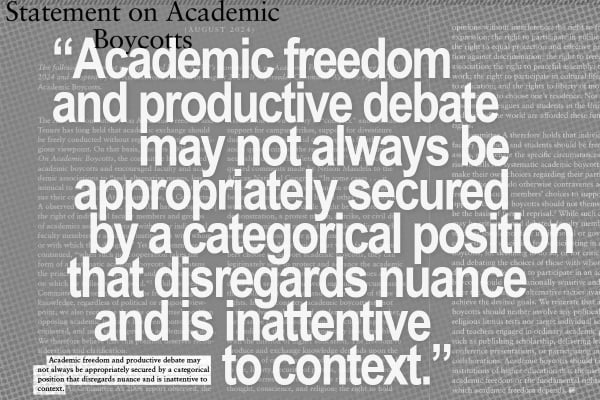The American Association of University Professors (AAUP) is facing criticism after its recent decision to reverse its stance on academic boycotts. The AAUP, a prestigious organization that represents more than 45,000 faculty members and academic professionals across the United States, had previously been a vocal opponent of academic boycotts. However, in a surprising turn of events, the organization announced that it would now support academic boycotts as a form of protest against human rights violations and other issues.
This decision has sparked controversy within the academic community, with many expressing concern over the implications of the AAUP’s new stance. Critics argue that academic boycotts are a violation of academic freedom and negatively impact the exchange of ideas and knowledge across borders. They fear that endorsing such boycotts could lead to the exclusion of valuable voices and perspectives from academic discourse.
Additionally, some have raised questions about the effectiveness of academic boycotts as a means of achieving social and political change. While proponents argue that boycotts can be a powerful tool for drawing attention to injustice and pressuring institutions and governments to change their policies, others are skeptical of their impact. They worry that academic boycotts may end up hurting the very individuals and communities they are intended to help, ultimately achieving little more than creating division and resentment within academia.
In response to the backlash, the AAUP has defended its decision, arguing that academic boycotts can be a legitimate form of protest in certain circumstances. The organization maintains that it is important for scholars to use their academic freedom to speak out against injustice and work towards positive social change. The AAUP also emphasizes that its support for academic boycotts is not meant to stifle debate or silence dissenting voices, but rather to encourage dialogue and engagement on important issues.
It remains to be seen how the AAUP’s new stance on academic boycotts will play out in the academic community. While some continue to voice their opposition, others are hopeful that this decision will spark much-needed conversations and action around pressing social justice issues. Ultimately, only time will tell whether the AAUP’s reversal will be seen as a bold and necessary step forward, or as a misstep that undermines the principles of academic freedom and open exchange of ideas.



